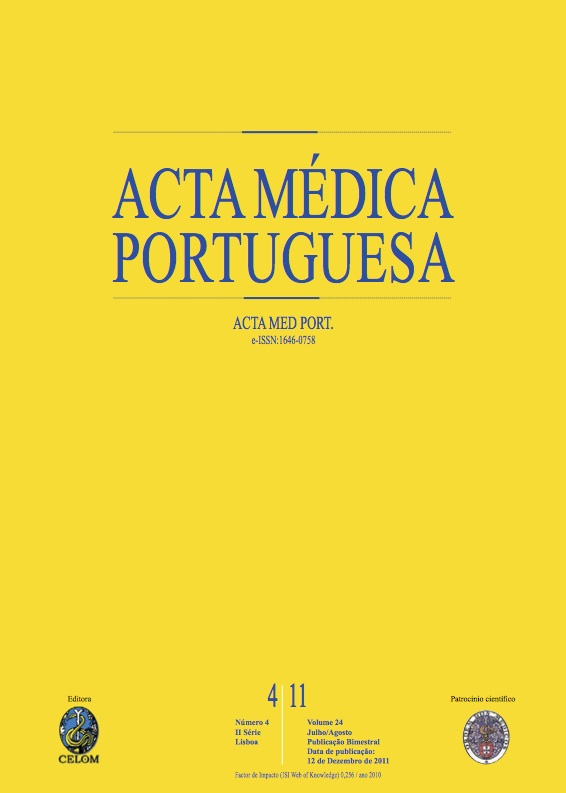Clinical effectiveness and economical evaluation of preventive vaccination.
DOI:
https://doi.org/10.20344/amp.484Abstract
The value of mass vaccination as a preventive measure for infectious diseases is one of the most important advances of modern Medicine. The impact on incidence of several infectious diseases, until recently responsible for significant morbidity and mortality at world level, is well proved in a series of high quality epidemiological studies. In this scientific review we aimed firstly to briefly resume the history of mass vaccination and its scientists, responsible for synthesis and marketing of these drugs. In second place we present a group of a few disease preventable by vaccines as well as the Portuguese National Vaccination Plan and its benefits. In third place we identified groups of subjects in which a well structured vaccination plan is particularly important, as well as the correspondent diseases to be covered by vaccination. Fourthly, we discussed the ethical considerations of vaccination, and its tensions between subject autonomy and society advantages in com pulsive programs. Fifthly, we analyzed clinical effectiveness of vaccines through the concept of herd immunity, clinical evaluation of immune response to vaccines and some examples of systematic reviews on three relevant diseases (influenza, meningococcal and pneumococcal infections). In sixth place we discussed vaccine safety presenting monitoring methods of vaccination risks, as well as discussing the public myths concerning vaccines. Finally we present a economic analysis of preventive vaccination with a review of some published literature on specific diseases. We conclude that mass vaccination is a efficacious preventive measure, as well as a economic rational choice, and that this public health intervention should be a pillar of a modern preventive system.Downloads
Downloads
How to Cite
Issue
Section
License
All the articles published in the AMP are open access and comply with the requirements of funding agencies or academic institutions. The AMP is governed by the terms of the Creative Commons ‘Attribution – Non-Commercial Use - (CC-BY-NC)’ license, regarding the use by third parties.
It is the author’s responsibility to obtain approval for the reproduction of figures, tables, etc. from other publications.
Upon acceptance of an article for publication, the authors will be asked to complete the ICMJE “Copyright Liability and Copyright Sharing Statement “(http://www.actamedicaportuguesa.com/info/AMP-NormasPublicacao.pdf) and the “Declaration of Potential Conflicts of Interest” (http:// www.icmje.org/conflicts-of-interest). An e-mail will be sent to the corresponding author to acknowledge receipt of the manuscript.
After publication, the authors are authorised to make their articles available in repositories of their institutions of origin, as long as they always mention where they were published and according to the Creative Commons license.









